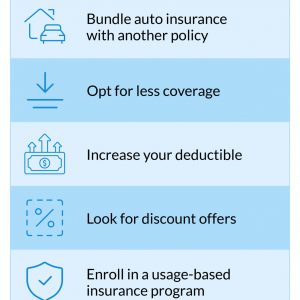-
Table of Contents
“Tax laws made simple for small businesses – no stress, no fuss!”
Introduction
Tax laws for small businesses can be complex and challenging to navigate. These laws dictate how small businesses must comply with the tax code and what taxes they are required to pay. The tax laws cover everything from income taxes to sales taxes, payroll taxes, and self-employment taxes.
One of the most critical aspects of tax laws for small businesses is understanding what types of taxes they are required to pay. This includes federal income taxes, state income taxes, and local taxes. Business owners must also be aware of whether they are required to pay sales taxes on the products or services they sell.
In addition to understanding the types of taxes they are required to pay, small business owners must also be familiar with the tax deductions and credits available to them. These can include deductions for expenses related to running the business, such as rent, utilities, and office supplies. They can also include tax credits for hiring employees, purchasing equipment, or investing in energy-efficient technologies.
Small business owners must also be aware of the various filing deadlines for their taxes, which can vary depending on the type of tax and the business’s structure. For example, sole proprietors must file their taxes by April 15th each year, while corporations must file by March 15th.
Overall, tax laws for small businesses require careful attention to detail and a thorough understanding of the tax code. Business owners should consider working with a professional accountant or tax advisor to ensure that they are complying with all relevant tax laws and taking advantage of any available deductions or credits.
How to Take Advantage of Tax Breaks for Small Businesses
Small businesses are an important part of the economy, and the government offers tax breaks to help them succeed. Taking advantage of these tax breaks can help small businesses save money and increase their profits.
One of the most common tax breaks for small businesses is the deduction for business expenses. This deduction allows businesses to deduct certain expenses from their taxable income. These expenses can include office supplies, travel expenses, and other costs associated with running a business. Businesses should keep detailed records of their expenses to ensure they are taking full advantage of this deduction.
Another tax break available to small businesses is the deduction for home office expenses. This deduction allows businesses to deduct a portion of their rent or mortgage payments, as well as other expenses related to running a home office. To qualify for this deduction, businesses must use the home office exclusively for business purposes.
Small businesses can also take advantage of the deduction for start-up costs. This deduction allows businesses to deduct certain costs associated with starting a business, such as legal fees, accounting fees, and advertising costs. This deduction can be taken in the year the business is started or in the following year.
Finally, small businesses can take advantage of the deduction for health insurance premiums. This deduction allows businesses to deduct the cost of health insurance premiums for their employees. This deduction can be taken in the year the premiums are paid or in the following year.
By taking advantage of these tax breaks, small businesses can save money and increase their profits. It is important for businesses to keep detailed records of their expenses to ensure they are taking full advantage of all available tax breaks.
Understanding the Basics of Self-Employment Tax
Self-employment tax is a tax imposed on individuals who are self-employed or who receive income from a business they own. It is a combination of Social Security and Medicare taxes that are normally withheld from the paychecks of wage earners. Self-employed individuals are responsible for paying the full amount of these taxes, which is 15.3% of their net earnings.
The self-employment tax applies to individuals who are self-employed, such as sole proprietors, independent contractors, and members of partnerships. It also applies to certain types of income, such as income from rental properties, royalties, and income from certain trusts.
When calculating self-employment tax, the first step is to calculate the individual’s net earnings. This is done by subtracting any business expenses from the individual’s total income. The net earnings are then subject to the self-employment tax rate of 15.3%.
The self-employment tax rate is composed of two parts: 12.4% for Social Security and 2.9% for Medicare. The Social Security portion of the tax is capped at a certain amount each year, while the Medicare portion is not.
Self-employed individuals can deduct half of the self-employment tax from their income taxes. This deduction is known as the “self-employment tax deduction” and can reduce the amount of taxes owed.
Self-employed individuals are also responsible for paying estimated taxes throughout the year. Estimated taxes are payments made to the IRS to cover the taxes that will be due when the individual files their tax return.
Understanding the basics of self-employment tax is important for anyone who is self-employed or who receives income from a business they own. Knowing how to calculate the tax and how to deduct it from their income taxes can help self-employed individuals save money and ensure they are in compliance with the law.
Navigating the Complexities of State and Local Tax Laws
Navigating the complexities of state and local tax laws can be a daunting task. With the ever-changing landscape of taxation, it is important to stay up to date on the latest regulations and requirements. Understanding the nuances of each state and local jurisdiction is essential to ensure compliance and avoid costly penalties.
The first step in navigating state and local tax laws is to understand the different types of taxes that may be applicable. These can include income taxes, sales taxes, property taxes, and other taxes. Each state and local jurisdiction has its own set of rules and regulations that must be followed. It is important to research the specific requirements for each jurisdiction to ensure compliance.
The next step is to understand the filing requirements for each jurisdiction. This includes filing deadlines, forms, and payment methods. It is important to be aware of any changes in filing requirements as they can vary from jurisdiction to jurisdiction.
Finally, it is important to understand the tax credits and deductions that may be available. These can help reduce the amount of taxes owed and can be a great way to save money. It is important to research the specific credits and deductions available in each jurisdiction to ensure that all applicable credits and deductions are taken advantage of.
Navigating the complexities of state and local tax laws can be a challenging task. However, with the right research and understanding of the regulations, it is possible to ensure compliance and take advantage of any available credits and deductions.
Exploring Tax Deductions for Small Businesses
Small businesses are the backbone of the American economy, and the Internal Revenue Service (IRS) offers a variety of tax deductions to help them succeed. Knowing which deductions are available and how to take advantage of them can help small business owners maximize their profits and minimize their tax burden.
One of the most common deductions for small businesses is the cost of goods sold. This deduction allows businesses to deduct the cost of materials and supplies used to produce goods or services. This includes the cost of raw materials, labor, and overhead expenses such as rent and utilities.
Another common deduction is the cost of business travel. This includes the cost of transportation, lodging, meals, and other related expenses. Business owners can also deduct the cost of business-related entertainment, such as taking clients out to dinner or attending a conference.
Small businesses can also deduct the cost of advertising and marketing. This includes the cost of printing business cards, brochures, and other promotional materials. It also includes the cost of online advertising, such as pay-per-click campaigns.
Small businesses can also deduct the cost of professional services, such as legal and accounting fees. This includes the cost of hiring an attorney or accountant to help with tax preparation or other business-related tasks.
Finally, small businesses can deduct the cost of employee benefits, such as health insurance and retirement plans. This includes the cost of providing health insurance to employees and the cost of setting up and maintaining a retirement plan.
By taking advantage of these deductions, small business owners can reduce their tax burden and maximize their profits. Knowing which deductions are available and how to take advantage of them can help small business owners save money and ensure their success.
Tips for Keeping Up with Changes in Tax Laws
1. Stay informed: Keeping up with changes in tax laws requires staying informed. Subscribe to newsletters, blogs, and other publications that provide updates on tax laws.
2. Attend seminars: Attend seminars and workshops that provide information on changes in tax laws. These seminars are often offered by professional organizations, universities, and other organizations.
3. Utilize online resources: Utilize online resources such as websites, podcasts, and webinars to stay up to date on changes in tax laws.
4. Consult a professional: Consult a professional tax advisor or accountant to ensure that you are aware of any changes in tax laws.
5. Stay organized: Stay organized by keeping records of all tax documents and filing them in an organized manner. This will help you to quickly access the information you need when changes in tax laws occur.
6. Ask questions: Ask questions when you are unsure about changes in tax laws. Contact the IRS or a professional tax advisor to get the answers you need.





